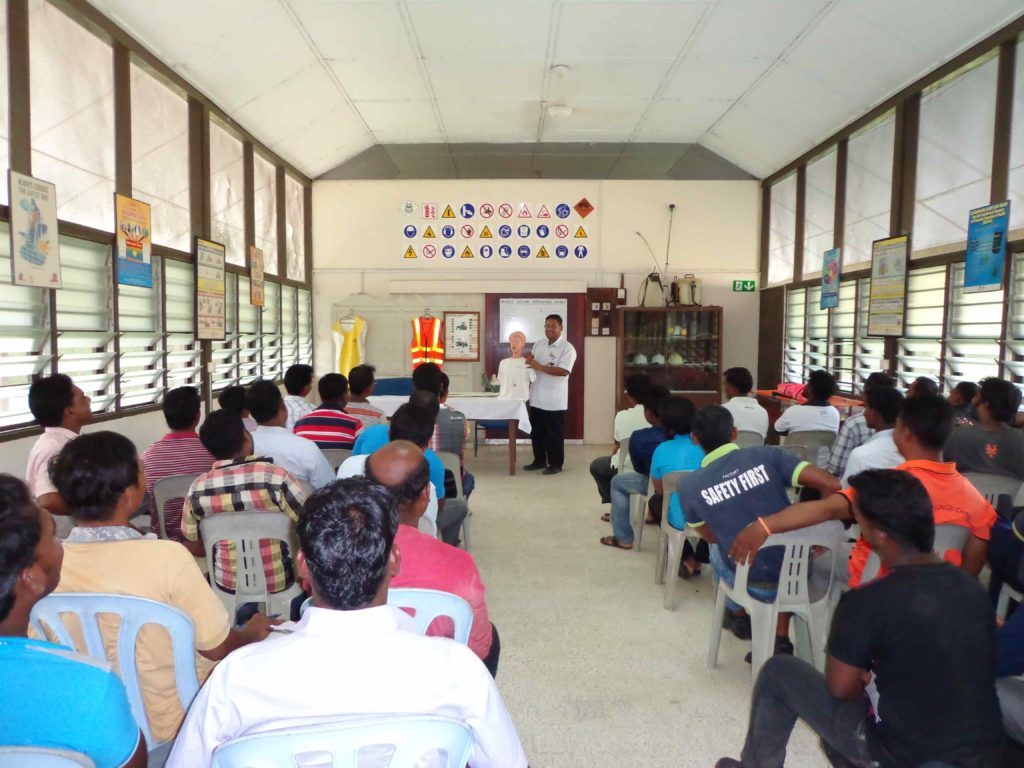EMPLOYEES
The success and achievement of our Group is related to our employees, both past and present, who loyally through hard work, strong leadership, honesty and respect have committed themselves to serve and dedicate their career and livelihood at UP.
We promote a working environment where there is mutual trust and respect and where everyone feels responsible for the performance and reputation of our group “No one at the top is stronger than the pyramid of people who support him/her.”
In UP, we are committed to adhere to the Core or Fundamental International Labour Organization (ILO) Conventions, ILO Declaration on Fundamental Principles and Rights at Work. We are also committed to live up to the Free and Fair Labour principles. These commitments apply to our direct and indirect suppliers.
Our employees are the Groups’ core assets, without which the success and stability of UP would not materialise. We are committed to diversity and have an equal employment opportunity policy. We recruit, employ and promote employees on the sole basis of the qualifications and abilities needed for the work to be performed and meritocracy is a hallmark of our Group. Whilst we actively promote the employment of women at UP, we also recognise that some work on our plantations is potentially more suitable for men due to the heavy physical nature of the tasks.
Male workers predominantly perform tasks such as harvesting fresh fruit bunches, crop collection and evacuation to the railway cages for transport to the mills, while women are assigned lighter work such as weeding, gardening and loose fruits collection. We provide crèches, playgroup classes and kindergarten at all operating sites to support our employees and their children.

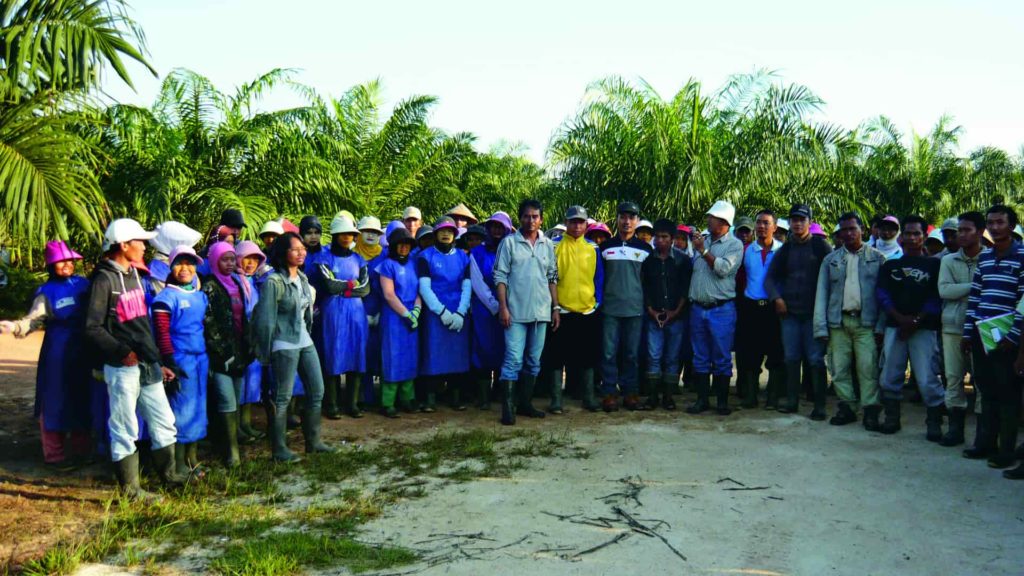
Ethical Conduct and Gender Equality
Code of Conduct and Business Ethics
A key element of UP’s sustainability framework is our Code of Conduct & Business Ethics. We implement responsible and ethical business policies and practices in all aspects of our operation.
The Government in line with its anti-corruption drive has announced that S17(A) MACC Amendment Act (2018) which covers corporate liability will come into force on 1 June 2020, to comply with this new enactment, the Code of Ethics & Governance Policy was reviewed and expanded to include all associated persons as defined under the Act. The changes were made under the Business Integrity and Corruption section of this Policy as follows:
UP has a zero-tolerance to fraud, bribery, and corruption and this applies to all dealings by our directors, employees, suppliers, consultants, agents and any person associated with UP.
UP as a responsible corporate citizen has been and shall continue to give scholarships and donations to deserving cases on the condition that this is not corruptly given as defined under Section 17 A(1) of MACC Amendment Act 2018. However, UP has a general policy of not giving political contributions to any political parties or candidates.
UP does not prohibit the giving of meals and gifts in the course of business dealings as long as these are of reasonable value, not in cash and are not corruptly given.
We commit to the principles of Free, Prior and Informed Consent and adhere to these principles in all our negotiations and interactions with stakeholders.
Corruption and bribery risk assessment was done and adequate procedures have been put in place to minimise the exposure to the Group. This risk like all other identified risks shall be periodically assessed and reported in the Statement On Risk Management and Internal Control.
Directors and officers have been sent for training to familiarise themselves with S17(A) MACC Amendment Act (2018). In-house anti-bribery training has been and will continue to be conducted in all operating units. Associated persons like contractors, agents, consultants, suppliers with bribery risks have been made aware and they have undertaken to comply with this Policy.
The Internal Audit Manager has been appointed as the competent person responsible for anti-corruption compliance matters and he is to report all his findings on this area to the Chairman of the Audit Committee who is an independent director. The Chairman of the Audit Committee shall after deliberation at the Audit Committee report the findings to the Board.
In addition to the above, all directors and employees who are vested with approval authorities on purchasing or enter into trades are to declare in the Annual Conflict of Interest Statement their compliance with the section on Conflict of Interest under this Policy.
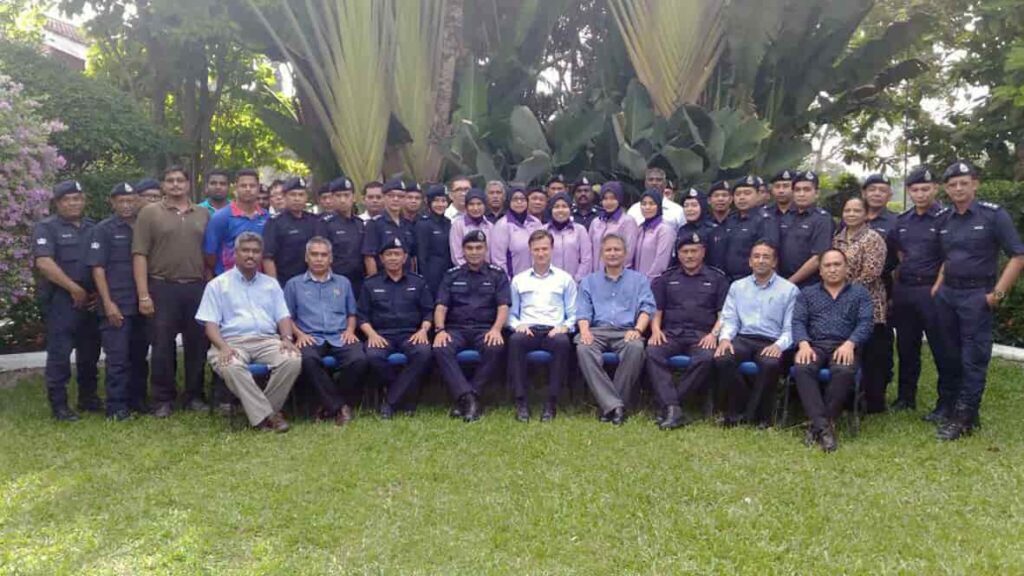
Personal Data Protection
UP has a Personal Data Protection Policy to regulate the collection, processing and usage of personal data in the ordinary course of its business. This is to ensure that personal information whether such information is collected on paper, stored in a computer database system or recorded on other materials are dealt with appropriately, and adequate security measures are accorded to such personal information under the provisions of the Personal Data Protection Act 2010.
Whistleblower Policy
We are committed to high standards of ethical, moral and legal business conduct. This policy aims to provide an avenue for employees, that they will be protected from reprisals or victimization for whistle blowing. This policy is intended to cover protection for the whistleblower when raising concerns regarding UP, such as concerns regarding:
- Incorrect financial reporting
- Unlawful activity
- Activities that are not in line with UP’s policy including the Code of Business Conduct; and
- Activities, which otherwise amount to serious improper conduct
Gender Policy and Gender Committee
Our Gender Policy that is designed to protect our female employees. We have established Gender Committee who includes representatives from labour unions and management to promote female participation and advancement in the workplace, handle sexual harassment complaints and provide support for victims. When a harassment case is reported, informally or formally, the relevant committee investigates to determine if further sanctions are needed or if law enforcement action needs to be taken.
UP promotes diversity in a working environment where there is mutual trust and respect and where everyone feels responsible for the performance and reputation of our group. We will recruit, employ and promote employees on the sole basis of the qualifications and abilities needed for the work to be performed. Meritocracy is a Hallmark of our Group.
We actively promote the employment of women at UP. We recognise that some work on our plantations is potentially more suitable for men due to the heavy physical nature of the tasks.
While male workers perform tasks including harvesting fresh fruit bunches, crop collection and evacuation to the railway cages for transport to the mills, women are assigned work including weeding, gardening and loose fruits collection. We provide crèches, playgroup classes and kindergarten at all operating sites to support our female employees and their children.
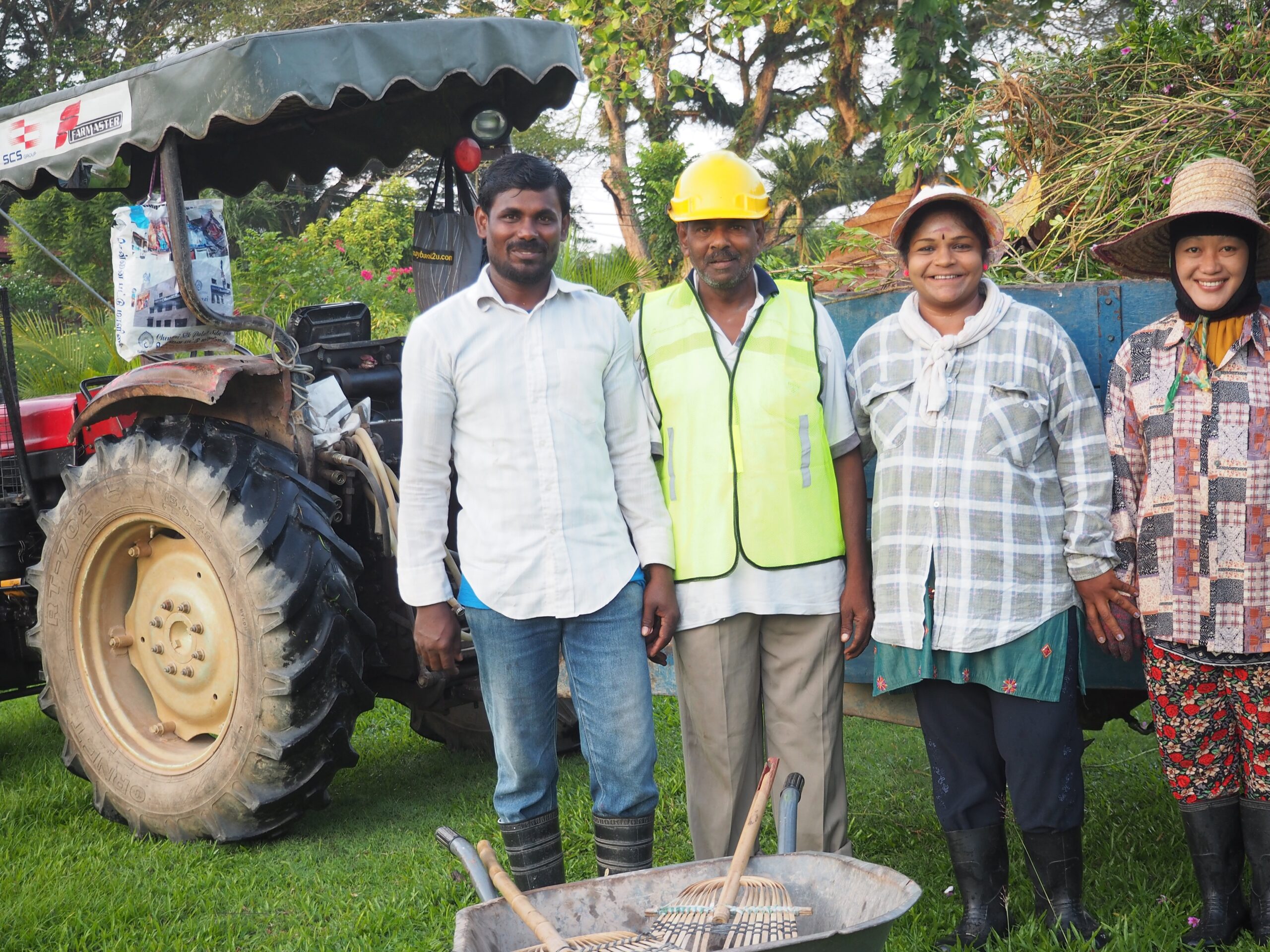
The statistics on the case related to sexual harassment reported in 2024 is shown below:
| Total incidents of sexual harassment reported | Nil |
| Corrective actions taken | Nil |
Human resource practices which respects universal human rights, including prohibiting the use of child or forced labour in our operations. We adhere to the fundamental elements of International Labour Organization (ILO) Convention and the United Nations Declaration on Human Rights, the Rights of Indigenous Peoples and other core values as ratified by the countries in which we operate.
UN Guiding Principles on Business and Human Rights
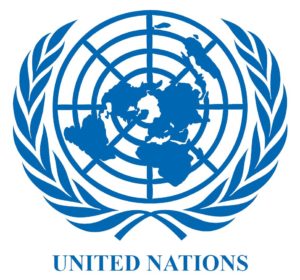
On 16 June 2011, the United Nations Human Rights Council endorsed the Guiding Principles on Business and Human Rights. In this context, UP has in place the following policies:
- Human Rights Policy
- Guest Workers Policy
As per our continuous improvement efforts, we are focusing on retraining (reach, teach and remind) all our employees, customers, contractors, suppliers and communities on the core values which we are fully committed to.
During the launch of The Malaysia Chapter of the UN Sustainable Development Solutions Network (UN-SDSN) in 2015, UP was mentioned as one of the sustainable development solution initiatives being undertaken in Malaysia. In the SDSN Malaysia Chapter, UP was identified as a “Business with a soul”. This acknowledgement was indeed pleasing and indicated our commitment to being a leader in economic, environmental and social sustainability.
Human Rights Policy
We at United Plantations Berhad are committed to the protection and advancement of human rights including prohibiting retaliation, intimidation and harassment against Human Rights Defenders (HRD), whistleblowers, complainants and community spokespersons.
Guest Workers Management System
We consider our foreign workers as guests and they are partners in our business along with our local workers. Our guest workers are from Indonesia, Bangladesh, India, and Nepal which constitutes 85% of our workforce in Malaysia, as such our challenges are to identify and understand human rights impacts on our diversified workforce within our Group.
In UP, we have revised our Guest Workers Policy to incorporate the key elements on human rights protection which includes, no Guest Worker shall pay any fees related to recruitments to come and work for UP, no withholding of passports, and personal documents, execution of employment contracts in the source countries, no withholding of wages and no penalty for premature repatriation.
Prior to embarking on their recruitment journey, all potential Guest Worker Candidates are directed through our in-house Call Centre to create awareness and disseminate information on the legal recruitment process to prevent deception and minimise their vulnerability. The workers are briefed on the recruitment process /fees, job scope, work nature as well as the employment contract in their native languages of their source countries.
In addition, Accredited Recruitment Agents are carefully selected to ensure that all Guest Workers are recruited transparently and without deception.
For more information on our Guest Workers Policy, please click here
The policy was revised in collaboration with Dignity in Work for All (formerly known as Verite SEA)
Guest Workers’ Passport and Personal Documents
All Guest Workers keep their passports in their own possession i.e safe deposit box are provided by the management at their respective accommodation.
Neither passports nor any identity documents shall be withheld or retained for whatsoever reason other than required for official document processing such as work permit renewal handled by the HRSS Department.
Guest Workers Repatriation and Leave
With 87% of our workforce being guest workers, there is a frequent turnover of employees within our Group. We strongly promote freedom of movement which can be seen in the table below. During 2024, 439 guest workers have been repatriated upon completion of their employment tenure. Another 880 guest workers went back on leave to their respective home countries of which 723 have returned.


The HRSS Team verifies each and every guest worker on arrival to ascertain the recruitment supply chain and expenses from respective source countries until the arrival in Malaysia.
Appropriate translators are engaged on a need basis during the interviews. This exercise is done to add credence for responsible sourcing within our supply chain.
Ethical recruitment of Guest Workers
The Malaysian Plantation sector remains reliant on Guest Workers, who provide about 80-85% of the industry’s labour requirement today. This is not at the expense of taking jobs away from local Malaysians as they prefer to work in urban cities and are just not interested in being employed as harvesters or to work with other field activities. In UP, as of 31 December 2024, we have 4,438 Guest Workers – mainly from Bangladesh, India and Indonesia – whom we consider as guests, and they are vital partners in our business along with our local workers. In some of these countries, there are risks of systemic human rights abuses, which is an important topic that has escalated since 2021 through numerous reports and media articles, particularly on the corrupt practices of undisclosed middlemen as part of the Guest Workers’ recruitment process. In light of this, it has become evident that more needs to be done to safeguard migrant workers during their recruitment to prevent such middlemen from abusing their inherent vulnerability through deception, thereby driving them into debt bondage. In combination with today’s improved understanding of forced labour risks and indicators, we agree to the growing consensus that more needs to be done to safeguard Guest Workers during their recruitment, from potentially becoming victims of deception, abuse of vulnerability and debt bondage.
To view the Ethical Recruitment Guidelines of UP, please click here.
Reimbursement of retrospective recruitment costs
In the absence of a widely accepted multi-stakeholder framework to address the abovementioned concerns and risks, we initiated an internal investigation and assessment of our own operations, which included interviews with more than 300 Guest Workers. This
investigation, which was carried out with “Dignity in Work for All”, was completed in January 2022 and established that our Guest Workers too had paid undisclosed recruitment fees to third parties in exchange for a job in UP. Consequently, we have strengthened our recruitment procedures, updated our Guest Workers Policy and introduced the Employer Pays Principle, effective 31 December 2021, stating that no Guest Worker should pay for a job in UP.
Whilst strengthening our policies going forward, we also acknowledge that reasonable remediation of past recruitment practices plays an additional role in alleviating the risk of forced labour in our operations. The investigation therefore also resulted in all active Guest Workers on 31 December 2021, recruited by UP from their respective home countries, receiving a full reimbursement payment for the undisclosed recruitment fees paid to third parties in the past. This payment was made on 5 December 2022, and amounted to RM 24.5 million in total. These initiatives have been discussed and worked on together with all our key customers, in the spirit of shared responsibility.
In addition, our 174 locally recruited Guest Workers have all been given RM3,000 as a goodwill payment towards the hardship faced in relation to their previous recruitment journey and employer. These are Guest Workers who fall under the Malaysian Government’s programme to legalize undocumented migrant workers, thereby giving them an opportunity to be employed by qualified employers subject to stringent conditions. UP has participated in this programme and paid all related recruitment fees and costs in line with our Ethical Recruitment Guidelines. This has given them a second chance in the form of a job, free quality housing of high standards, social amenities as well as free water, electricity and medical coverage.
Finally, we continue to invest time and resources in identifying eligible ex-Guest Workers through our Outreach Programme, for whom reimbursement funds have been set aside in a sinking fund of RM4.38 million. This is to cover the 635 Guest Workers who were active on 31 December 2021 but had left our Company (absconded, repatriated or on leave) before the payment was made on 5 December 2022. From this, a balance of 322 eligible ex-Guest Workers are yet to be reimbursed as of 31 December 2023.
Furthermore, there are also 166 locally-recruited ex-Guest Workers who have not yet been paid and are therefore included in the Outreach Programme. We are attempting to identify all eligible ex-Guest Workers through our Outreach Programme, which have been extended until 30 June 2024 and contains the following activities that are verified by our internal audit team and an independent third party.:
1. Newspaper advertisement in the respective source countries.
2. Engagement with source countries’ Embassies and High Commissions
3. Identification and engagement through UP’s Call Centre via contact details obtained by Estate management or friends who are still in UP.
4. Engagement of individuals in the source countries to search for our eligible ex-Guest Workers in the villages, followed by authentication by an appointed legal professional before payments are made.
5. Engagement with an Independent Human Rights Activist to use his vast network to contact the eligible ex-Guest Workers
For more information on the reimbursement of retrospective recruitment costs, please click here.
Recruitment of new Guest Workers
In 2024, despite the challenges , UP managed to recruit 643 new Guest Workers during the year, This was guided by our strengthened Ethical Recruitment Procedures, which are regularly assessed by NGOs and Human Rights Activists, and explained in detail below.
Firstly, whether recruitment is facilitated by our Guest Worker Recommend Guest Worker program, or at the grassroot level via an Accredited Recruiting Agent (ARA) or Government bodies, we strive to ensure that all new Guest Workers are recruited in compliance with the ILO indicators of Forced Labour, as well as our Employer Pays Principle stating that no Guest Worker should pay for a job in UP.
Addressing forced labour and minimising recruitment risks is also about recognising and tackling the systemic issues that enable abuses. We have therefore decided to cut out several actors in both the sending and receiving countries, such as sub-agents as well as recruiting agencies in Malaysia, and instead spread information to new candidates in their villages through our In-House Call Centre to mitigate the risk of deception.
In this connection, our Call Centre continues to play a crucial role as the first point of contact with new candidates. The Call Centre staff who speak the candidates’ respective native languages clarify the overall recruitment process and terms of employment with UP to reduce the new candidates’ vulnerability and minimize the risk of deception.
In addition, the Call Centre helps to bridge the gap between the candidates in their villages and our Accredited Recruiting Agents located in the source countries’ larger cities. This is to address the fact that a big part of the problem often lies here, with middlemen in the rural villages often charging exorbitant fees to the village folks in exchange for a job.
The Call Centre has been operational for over wo years, and many positive outcomes have emerged, as evidenced by the feedback from new Guest Workers, who, through clear communication and expectation setting, are informed about their rights, entitlements, and precautions from the outset.
In recent years, we have introduced several new steps to further strengthen our Ethical Recruitment Procedures and mitigate the vulnerability of the new candidates prior to their arrival at UP based on our improved understanding of forced labour risks and gaps identified along the recruitment process:
1.Screening of the recommenders under the Guest Worker Recommend Guest Worker program.
2. Call Centre screening of new candidates to inform them of the job type, their rights , and to educate them on zero cost recruitment by UP to mitigate their vulnerability.
3. Various notices are sent to the potential candidates throughout their recruitment process to raise their awareness.
4. Each new Guest Worker is provided all relevant documents and information about his employment and recruitment journey in a dossier.
5. Verification upon arrival in Malaysia by the HRSS team to ascertain that all new Guest Workers have been briefed by the Call Centre and have gone through all steps of our Ethical Recruitment Procedures.
6. Onboarding sessions are carried out for all new Guest Workers by the HRSS team to facilitate their integration into the environment on our estates and to brief them again on their terms of employment, company policies, safety at work, grievance redressal mechanism and other aspects.
Furthermore, we also ensure they have received their free meals upon arrival, kit allowance, passport payments and that housing along with other amenities are in good conditions.
7. Internal verification by the Internal Audit team 3-6 months after arrival to detect any red flags and mitigate the likelihood of debt bondage.
8. In the event of any breach of our Ethical Recruitment Procedures, each case is thoroughly evaluated to determine accountability and remediation.
In addition,, training on due diligence and audit of recruitment agencies was carried out by a team of subject-matter experts from by “Dignity in Work for All”, including a joint assessment of an ARA in Indonesia to evaluate and monitor their performance and processes. DIWA also conducted an in-house workshop for our Executives, Supervisors and Mandors on grievance redressal procedures and fair treatment.
Furthermore, the collaboration with DIWA, a new collaboration with Mr Jerald Joseph, an experienced independent Human Rights Consultant – in partnership with the social NGO North-South Initiative (NSI),was established, to observe, evaluate and provide further guidance on our Ethical Recruitment Procedures in Malaysia as well as the source countries. The results from the third-party assessment have been positive, with the assessors praising our efforts as a Company in combating and mitigating forced labour in our supply chain.
We have also received the observation findings of arrival of Guest Workers at KLIA by the Independent Human Rights Consultant Mr. Jerald Joseph and of North South Initiative. This concludes the full cycle of our Ethical Recruitment audit by an Independent third-party assessor. Their recommendations have further enriched our Ethical Recruitment Procedures.
Through this collaboration, much time and effort have also been spent on evaluating our recruitment avenue in Bangladesh, where we continue to work closely with Bangladesh Overseas Employment Services (BOESL). BOESL who is not related to recruitment agencies , is the only state-owned recruitment agency in Bangladesh, has ‘no profit no loss’ strategy and works in a transparent manner.
Fair Wages and Employee’s Benefits
The average monthly earnings of our workers in Malaysia amounts to approximately RM2,500 which includes productivity incentives and overtime. This is higher than the minimum monthly wage of RM1,700 rate set by the Malaysian Government from 1February 2025. We practice gender equality policy on wages payment and remuneration for all our employees.
For our Indonesian operations, the average monthly earnings of the permanent workers amounts to IDR4,061,149 which includes productivity incentives and overtime. The minimum wage set by the Indonesian Government in 2024 was IDR3,474,797.
The average earnings per worker per month are reflected in the table below.

In our Malaysian operations, we do not have any temporary workers. However, in our Indonesian operations, during peak crop season (2-3months in a year), temporary workers are engaged which constitutes to around 10-12% of the total workforce (≈140 temporary workers out of total ≈1200 workforce) as of December 2024. The seasonal temporary workers are offered employment with similar wages as permanent employees, appropriate insurance coverage and medical facilities.
We, at UP, are committed to pay at least minimum wages for workers who achieved full attendance and the similar commitment applies to all direct and indirect sourcing.
| Male | Female | |
| Malaysian operations | 100% | 100% |
| Indonesian operations | 100% | 100% |
Remark: The earnings for both male and female workers are calculated in a similar manner based on the working days or Productivity Linked Wages System (PLWS). We adhere to the equal treatment practices in line with our Human Rights Policy.
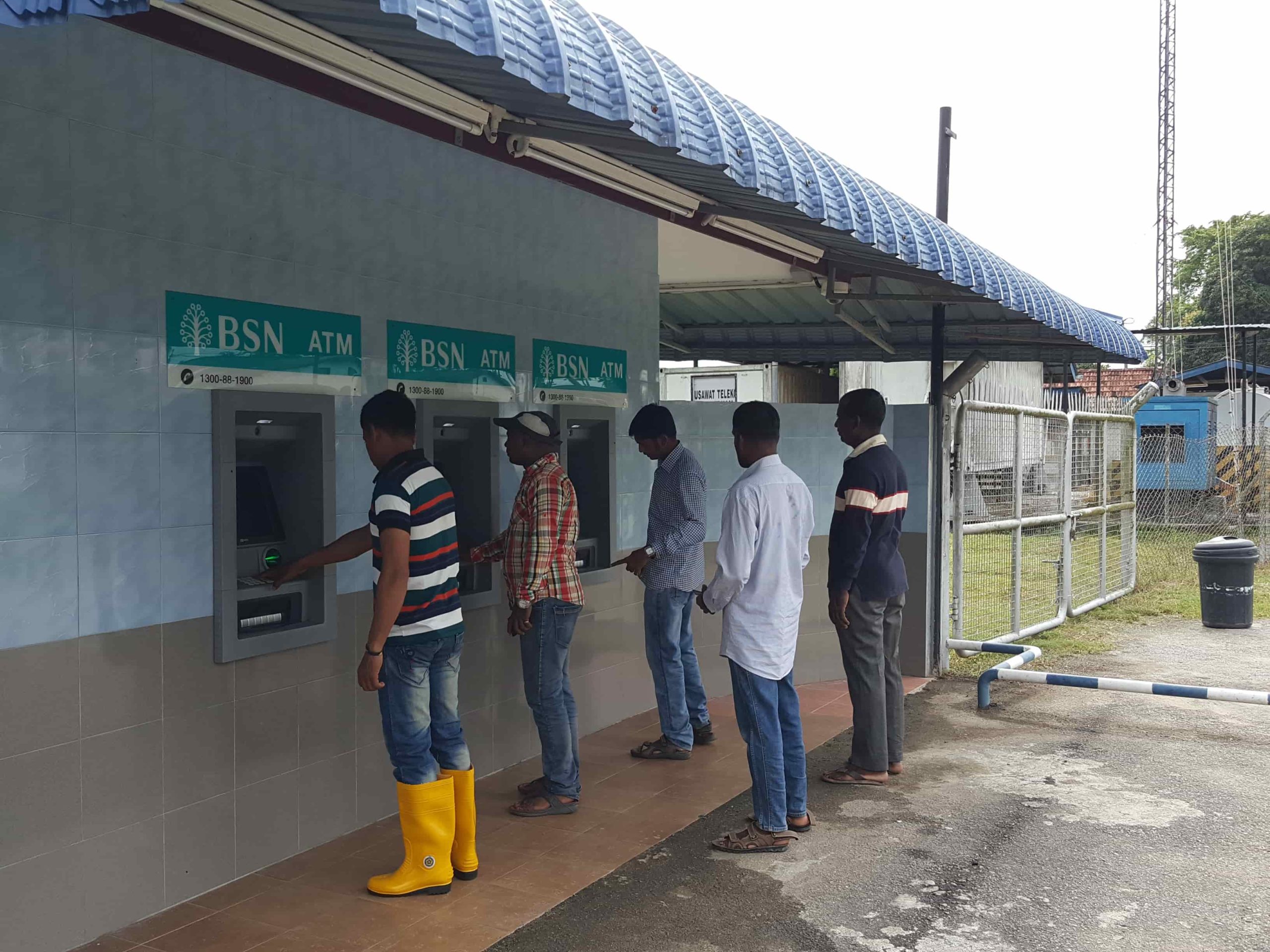
Freedom to form a Union
Employees and workers have the rights to form and become members of labour unions. Through unions, workers have the right to carry out collective bargaining as permitted under Malaysia and Indonesia laws.
Minimum Notice Periods Regarding Operational Changes
United Plantations Berhad is a member of MAPA (Malayan Agricultural Producers Association) which has collective agreements with NUPW (National Union of Plantations Workers) and the All Malayan Estates Staff Union (AMESU) Employees and workers have the rights to form and become members of labour unions. Through unions, workers have the right to carry out collective bargaining as permitted under Malaysia and Indonesia laws.
The Company also engages with the Food Industry Employees Union for refinery workers. The collective agreements are renewed every three (3) years where either party may serve on the other three (3) months’ written notice to negotiate on new terms and conditions of employment and other related matters but no such notice shall be served earlier.
The timely and meaningful collective bargaining allows the affected parties to understand the impacts of the changes. It also gives an opportunity for both parties to work collectively to avoid or mitigate negative impacts as much as possible. Consultative practices that result in good industrial relations help to provide positive working environments, reduce turnovers and minimize operational disruptions.
Living Wage (LW) Assessment
The RSPO Secretariat is in the process of commissioning benchmarks for Malaysia and Indonesia for the palm oil sector and will develop methods to calculate and/ or define LW applicability for all palm oil producing countries in which RSPO members operate. In 2023, the RSPO Living Wage Working Group has changed the terminology of Decent Living Wage (DLW) to Living Wage(LW) with a stepwise approach. Each step of the Living Wage trajectory has assigned milestones and outcomes towards achieving a Living Wage payment to all workers in the sustainable palm oil sector.
In the past, UP has proactively worked with several large growers in the industry to engage Monash University for a fair and decent wage assessment and will strive to commit our suppliers to live up to the payment of LW to their workers too. Until the national benchmark is established by the RSPO Secretariat, we are adhering to the applicable regulations in relation to the national minimum wages in the countries where we operate.
However, we are conducting the prevailing wage assessment as per the RSPO Prevailing Wage Calculation Guidance to understand and compare the benchmark of LW determined by the third-party assessment as mentioned above against the prevailing wage.
Internal Stakeholders
Recognising the value and importance of communication and consultation in clearing up misunderstanding/conflicts/grievances or raising any issues with United Plantations Berhad, the following procedure is adopted, in an effective, timely and appropriate manner that is open and transparent to any internal stakeholders.
Step I
Within four (4) working days of a grievance arising, the employee concerned shall raise the grievance with supervisory staff to whom the employee is responsible and shall be given the opportunity to be accompanied by not more than two members of the Union Committee/Guest Workers’ Welfare Committee/Employee himself.
Step II
If the matter is still not settled within a further five (5) working days, following representations made under Step I above, the appropriate Union Committee shall make formal representation to the estate in writing. On receipt of Union Committee’s letter, the estate will, without delay, offer arrangement for a meeting between the executive staff to whom the employee is responsible and/or an accredited official of the estate and Union Committee which will be attended by not more than two Union Committee’s representatives. Such a meeting shall be held within seven (7) working days of receipt of the Union Committee’s letter/Guest Workers’ Welfare Committee/Employee himself.
Step III
If the matter remains unsettled, the grievance shall then be discussed between the Manager and/or his accredited officials and Union Committee representatives, Guest worker’s, Welfare Committee/Employee himself within a further period of seven (7) working days.
Step IV
If the matter still remains unsettled, it shall then be dealt with under the provisions of the Industrial Relations Act, 1967 or the Employment Act, 1955.
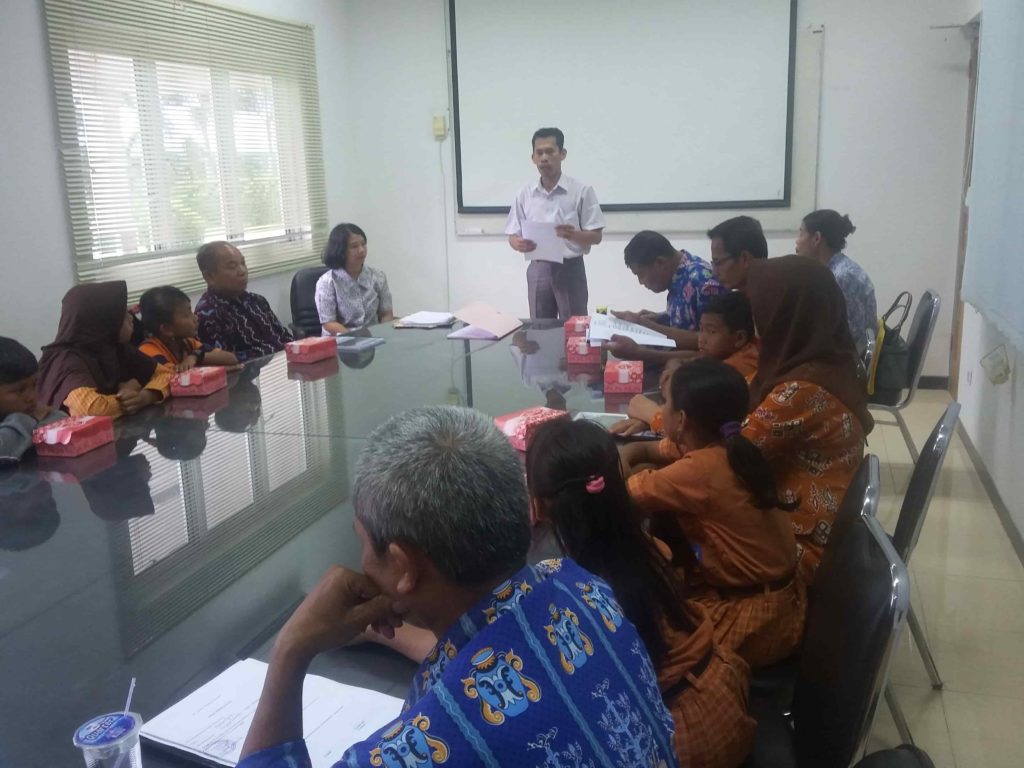
Sexual Harassment
Any grievance related to sexual harassment or violence cases shall adhere to the redressal procedure as follows:
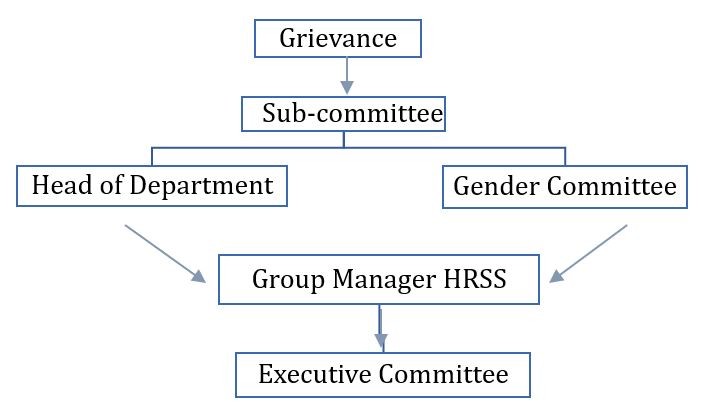 Any worker who has grievance related to sexual harassment or violence nature can obtain the complaint form from one of the sub-committee members in respective Estates/Departments and either complete it herself or request the assistance of the sub-committee member to fill it up.
Any worker who has grievance related to sexual harassment or violence nature can obtain the complaint form from one of the sub-committee members in respective Estates/Departments and either complete it herself or request the assistance of the sub-committee member to fill it up.
The complaint form is to be submitted to the respective Head of Department and copied to the Gender Committee. Appropriate action should be initiated by the Head of Department. If the issue is not resolved in two (2) weeks from the date of complaint or if the victim is not satisfied with the way the issue is dealt with at the department level, the Gender Committee will bring this case up to the Group Manager Human Resources, Sustainability and Safety (HRSS). The Group Manager HRSS has been given the mandate by the Chief Executive Director to address all unresolved issues pertaining to sexual harassment and violence. If and only if the issues are unable to be resolved by the Group Manager HRSS, the case will be brought forward to the Executive Committee for the top management’s discussion and decision.
Our commitment towards providing quality housing and social amenities and to maintain the highest possible welfare standards for the families of our workforce.
United Plantations is forward-looking and proactive in Corporate Social Responsibility, providing excellent amenities and emoluments well above the minimum statutory requirements prescribed by the various Acts and Regulations of the nation, governing the plantation industry.
Social Commitments
UP is committed towards providing and improving social amenities remains very much a hallmark within our Group. Continuous improvements were made during 2024 to provide our workforce with the best possible facilities which are significantly above the latest amendments to the Employees’ Minimum Standards of Housing, Accommodations and Amenities Act 1990.
For babies and young children UP continues to provide and maintain crèches for personalised child care thereby ensuring that employees are comfortable about their children while at work.
Today, our Group has 9 Primary Schools and 7 Kindergartens which are maintained by the Company, providing education for more than 500 children ranging from age of 5 to 12 years. Bus subsidies for school children above the age of 12 years old are also provided for.
Places of worship for our employees, Group Hospitals & Clinics and an Old Folks’ Home to care for the aged and the homeless as well as a fully operational Danish Bakery are also a part of UP’s care and commitment towards the wellbeing of its employees.
In addition, 27 scholarships were granted to children of our employees during 2024 thereby enabling these students to pursue their tertiary studies.
Annual Benevolent Payments
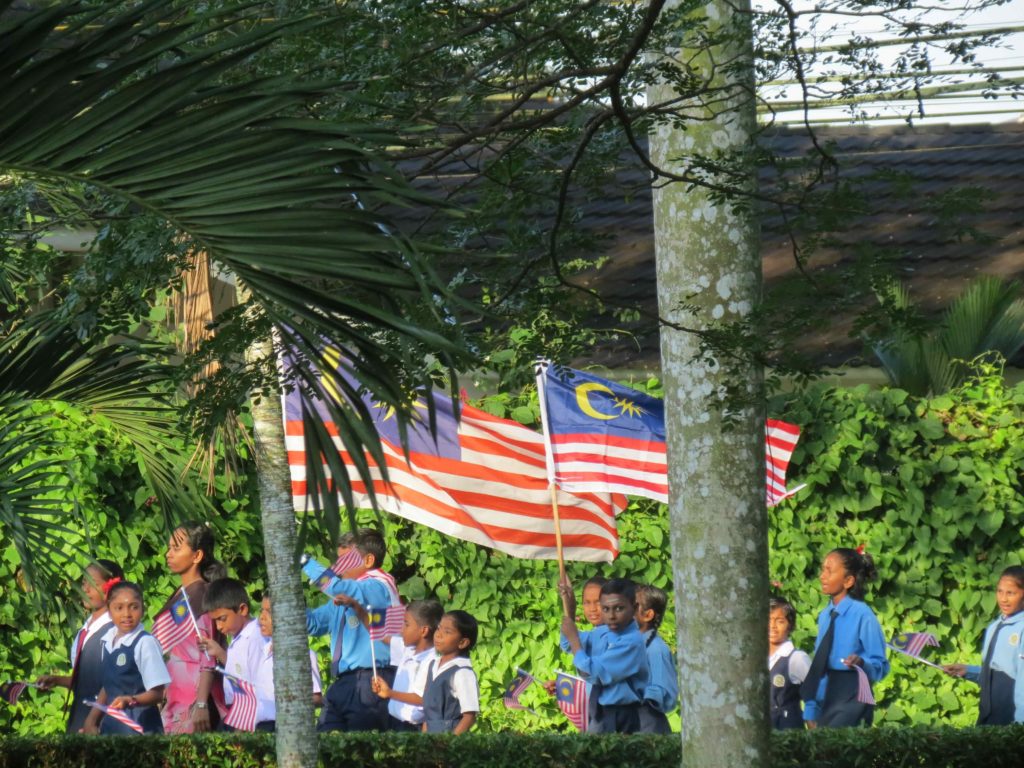
Annual benevolent payments as well other compassionate and educational payments as well as some external donations including for Covid-19 made by the Group to workers amounted to RM2,054,600 during 2023. The payments made through our various Benevolent and Educational Schemes are as follows:
- UP Workers Benevolent Retirement Scheme ( established in 1985)
- UP Education and Welfare (established in 1986)
- UIE (M) Education and Welfare Fund (established in 1997)
The objective of the UP Workers Benevolent Retirement Scheme is to provide retirement benefits to workers who are loyal and have served the Group for 10 years and above and in addition to the workers entitlement under their respective collective agreements.
Social Commitments of the Group

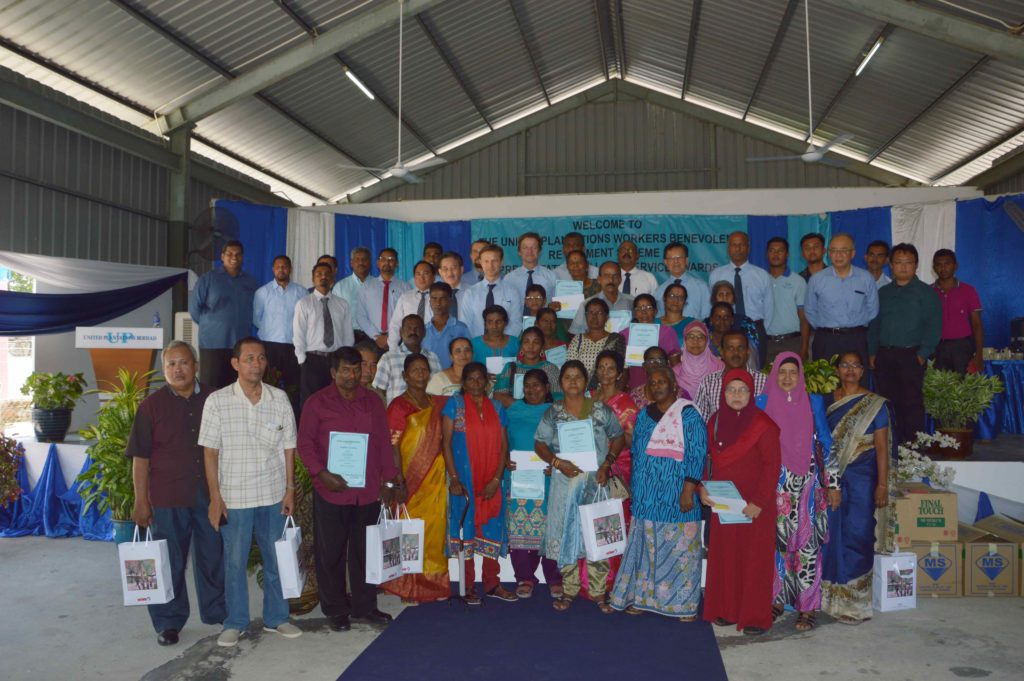
Dedicated employees being recognized and rewarded for their long service upon their retirement
Social Amenities
The Community Halls on our estates continue to be put to good use providing our employees with vastly improved facilities for special functions such as weddings, engagements and other religious ceremonies.
Upgrading of our guest workers living quarters which our Company embarked on since 2010 has progressed well and is ongoing. These guest workers terrace houses have provided the finest living facilities in our industry with a living area of 150m2 per unit encompassing 3 bedrooms, 1 kitchen, 2 bathrooms and a large hall and patio.
Sporting Activities
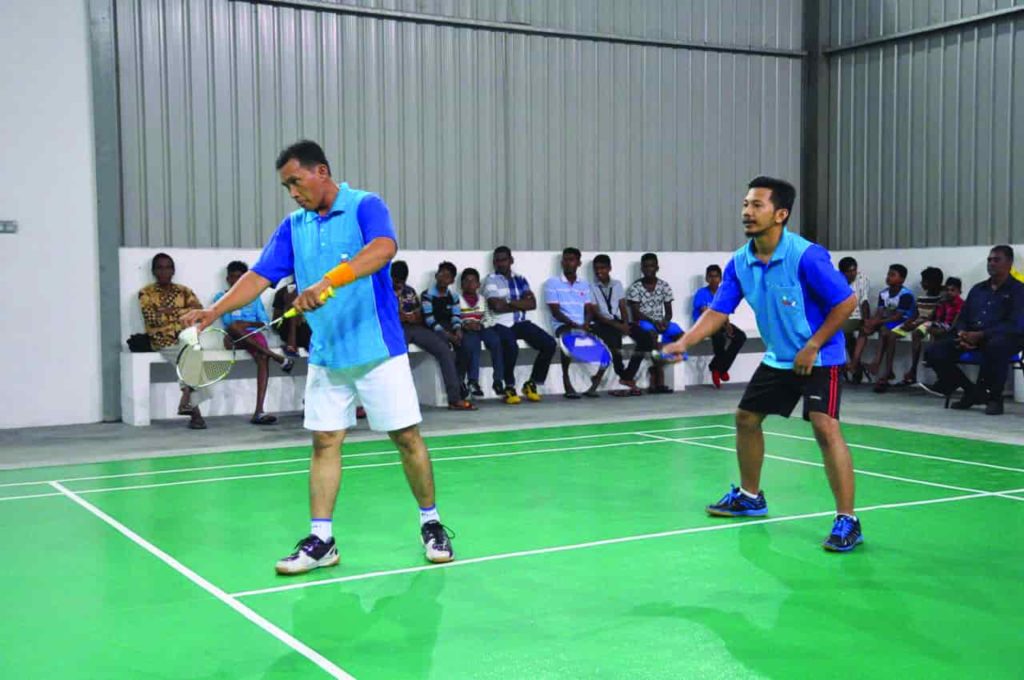
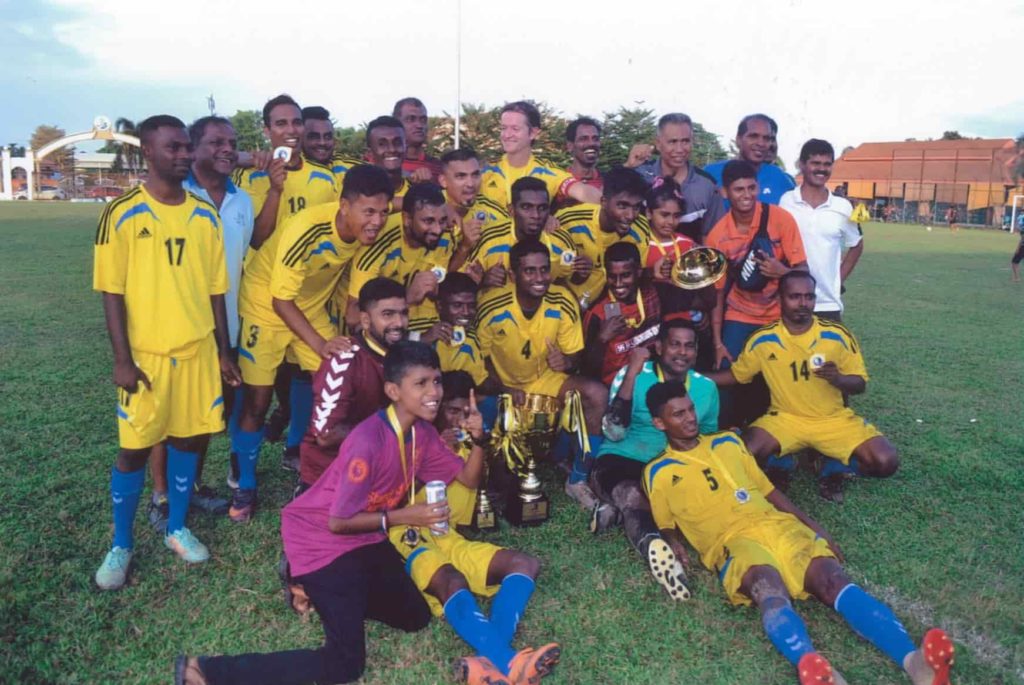
We encourage our employees to participate in sporting and social activities by providing facilities such as football fields, community halls, badminton courts, tennis court and futsal court etc. During the year several intercompany badminton and football tournaments were arranged providing fun and team work outside office hours.
In addition, annual sports days are held at selected estates to enhance friendship and community spirit through sports.
UP Football Team, Jendarata FC emerged champions in the Lower Perak District League Championship held on 12 January 2019, after a number of tough matches to the delight of supporting fans and players.
Bernam Bakery
Bernam Bakery located on Jendarata Estate UP, 160km north of Kuala Lumpur, renowned for its Danish pastries and hand-made cookies, was the brainchild of our late Tan Sri Dato’ Seri B. Bek-Nielsen.
It was established in 1982, purely out of necessity, to teach the local employees how to make good wholesome bread, for the local community, who found the quality of bread they bought from various dealers to be inferior, thus a scheme was created to enable the employees of the plantation to purchase quality bread .
The bakery, which is equipped with the most modern Danish machinery, was constructed within five months. Tan Sri Dato’ Seri B. Bek-Nielsen enlisted the help of his good friend, the late Robert G. Pedersen, a master baker and retired lecturer from Holstebro Bakery School in Denmark, to train our local employees on the traditional art of baking original Danish bread and cookies on a no cost basis. It was amazing to see how the bakers became proficient within 6 months, thus providing our labour force with wholesome and nutritious secret recipes of bread and cookies of excellent quality, using shortenings produced by our refinery, Unitata.
The transfer of Danish Technology in the Baking Industry, took many years of dedicated work under the watchful eyes of the master baker.
The current bakery Manager, Mr. Jayarama Reddy and his team, do not only cater for the employees and the public but also is a proud supplier of high quality bread, pastries, cakes and biscuits to the many guests who visit United Plantations as well as certain outlets throughout Malaysia.
In January 2018, Mr. Vagn Nielsen, a Master Baker and a retired lecturer from Holstebro Bakery School in Denmark was invited to Bernam Bakery to train and work together with our local bakery team to help ensure that the quality in the final product is assured and found to be consistent.
Mr. Vagn Nielsen is a former student and friend of the late Mr. Robert Pedersen and it is therefore most pleasing that he has agreed to be associated with Bernam Bakery as a visiting Bakery Adviser together with his wife Mrs. Else Nielsen going forward.
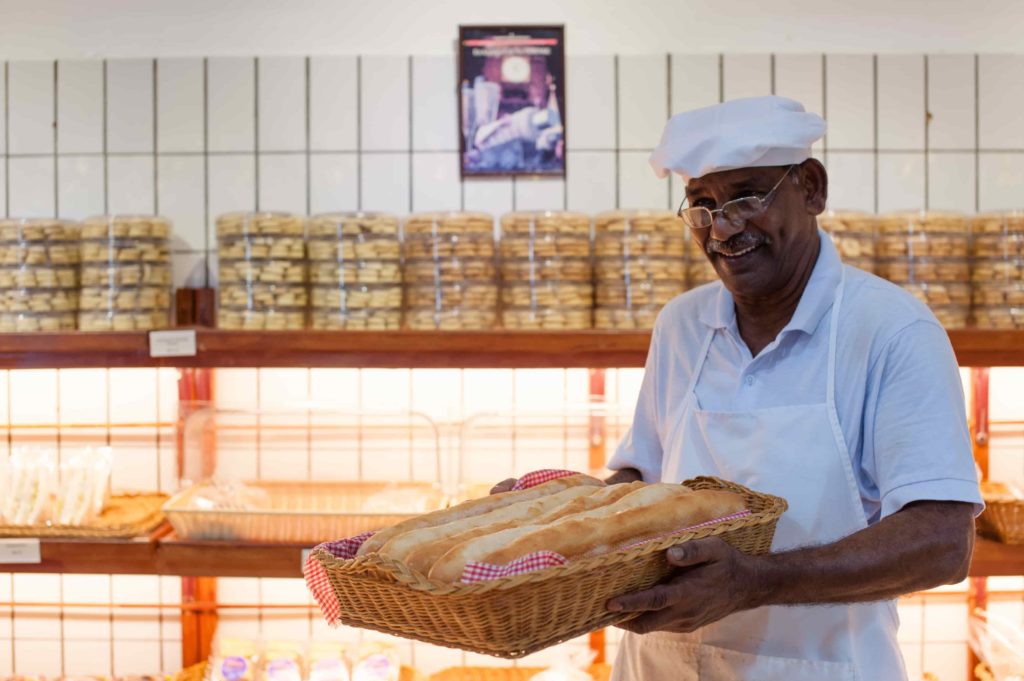
Our corporate culture is deeply embedded in our traditional values and legacy the Company’s founders left behind nearly 119 years ago. The Old Folks Home was officially opened by Minister of Labour, YBhg Tan Sri V. Manikavasagam on the 17 March 1967 on Jendarata Estate and is the only one of its kind in this industry. Set in a peaceful environment, it caters for the retired and aged employees who are given free boarding, food and medical care. A full-time caregiver is also provided for the Home.
Old Folks Home
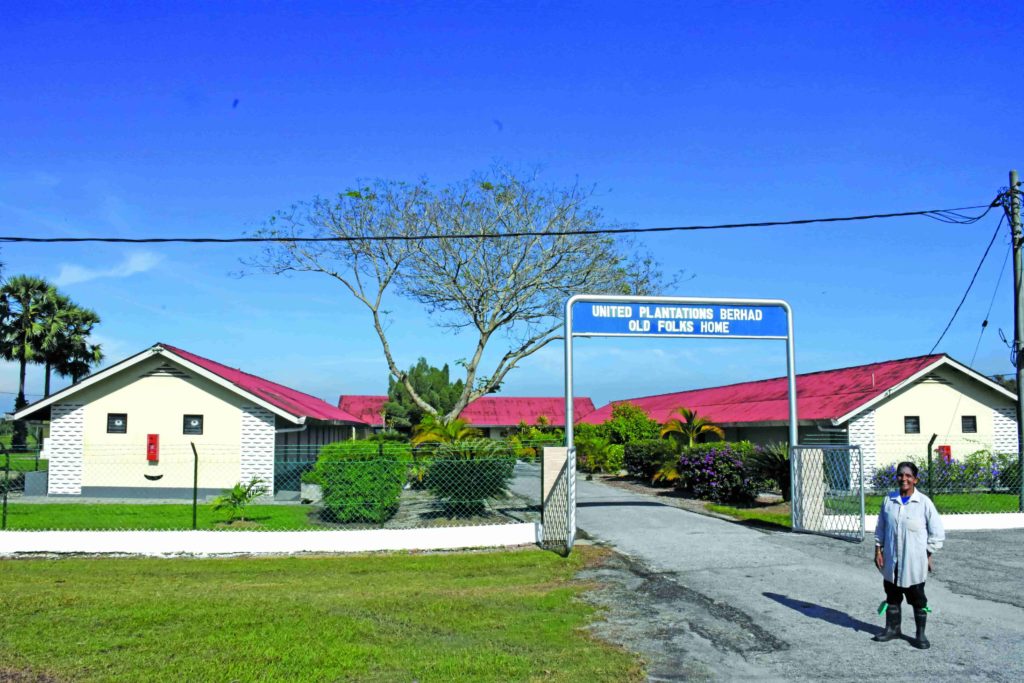
Creche
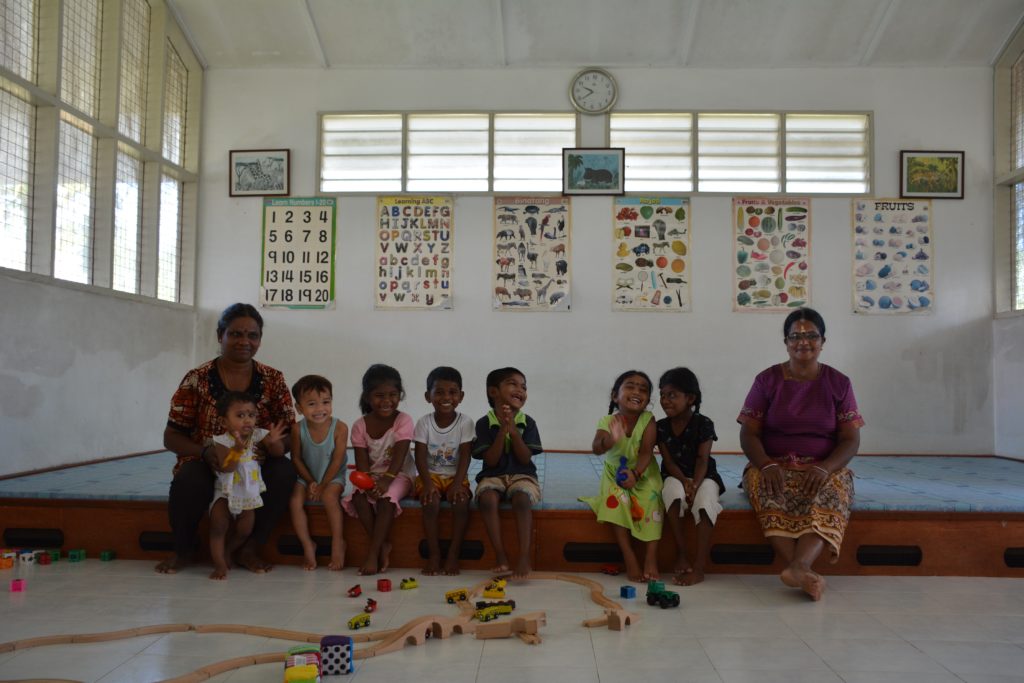
Kindergarten
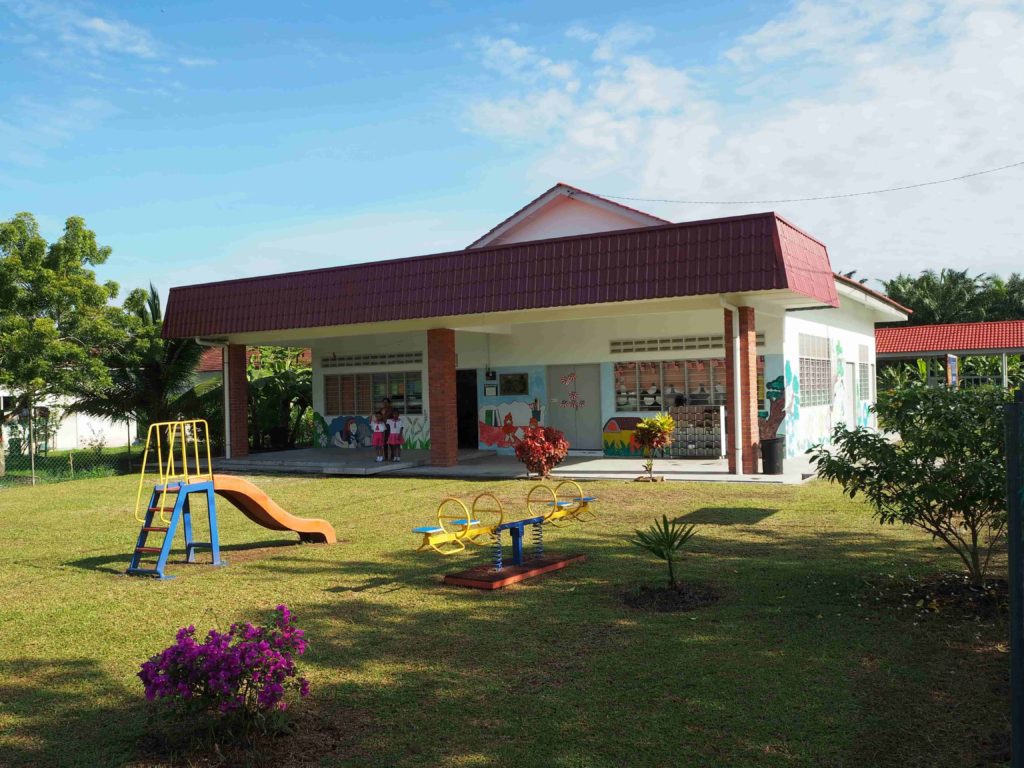
Primary School
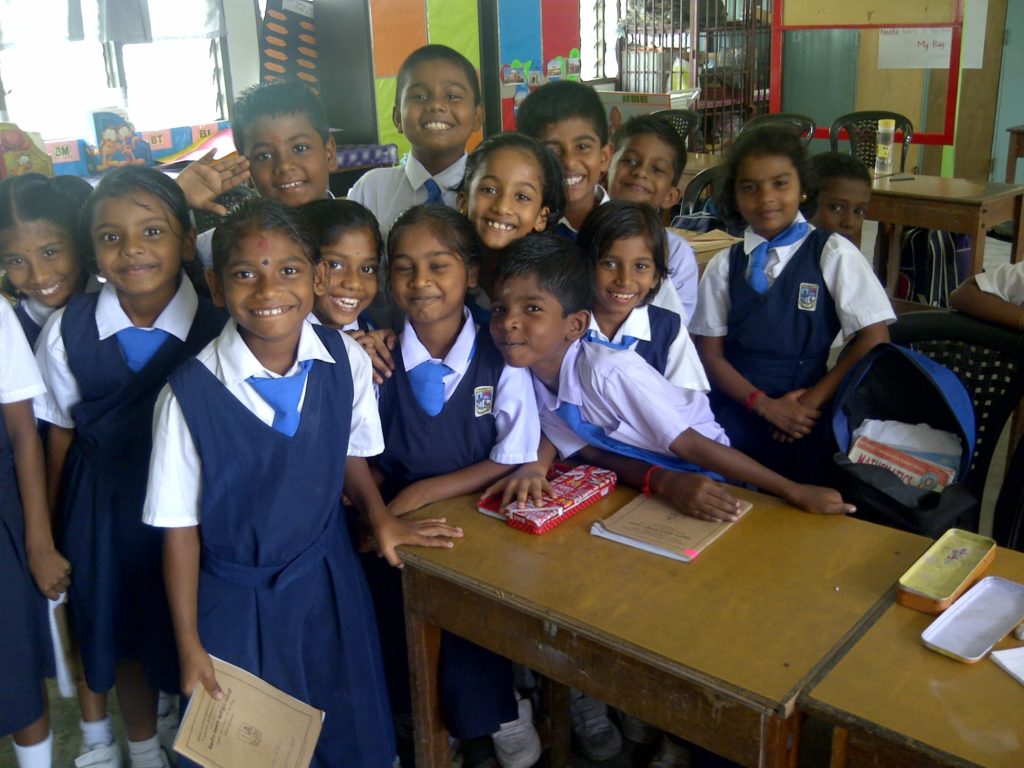
Clinic
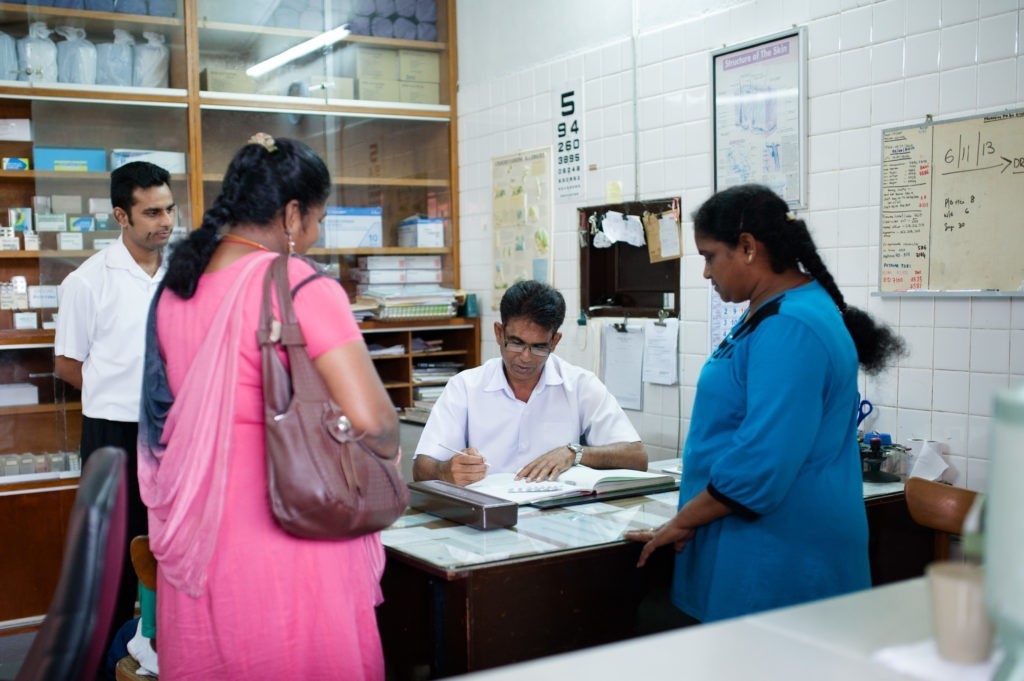
Group Hospital
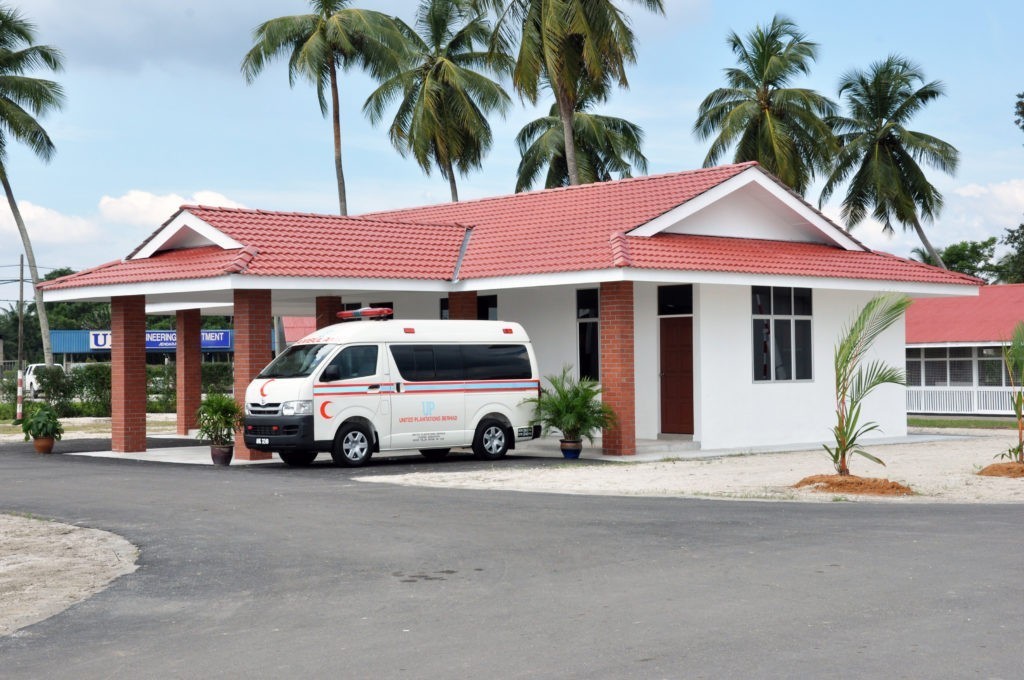
Temple
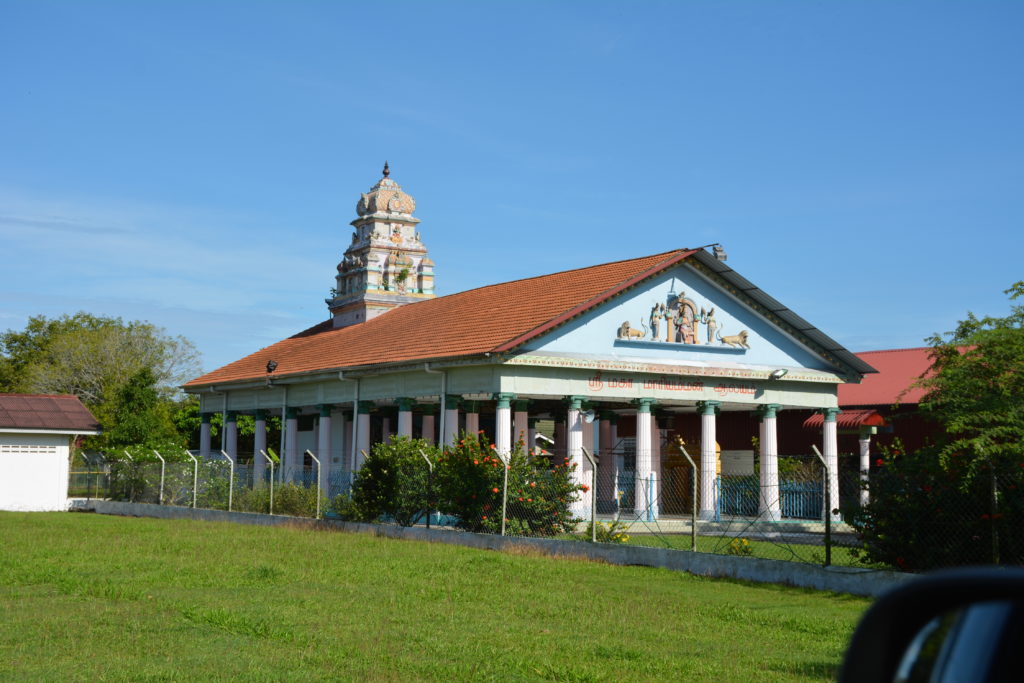
Church
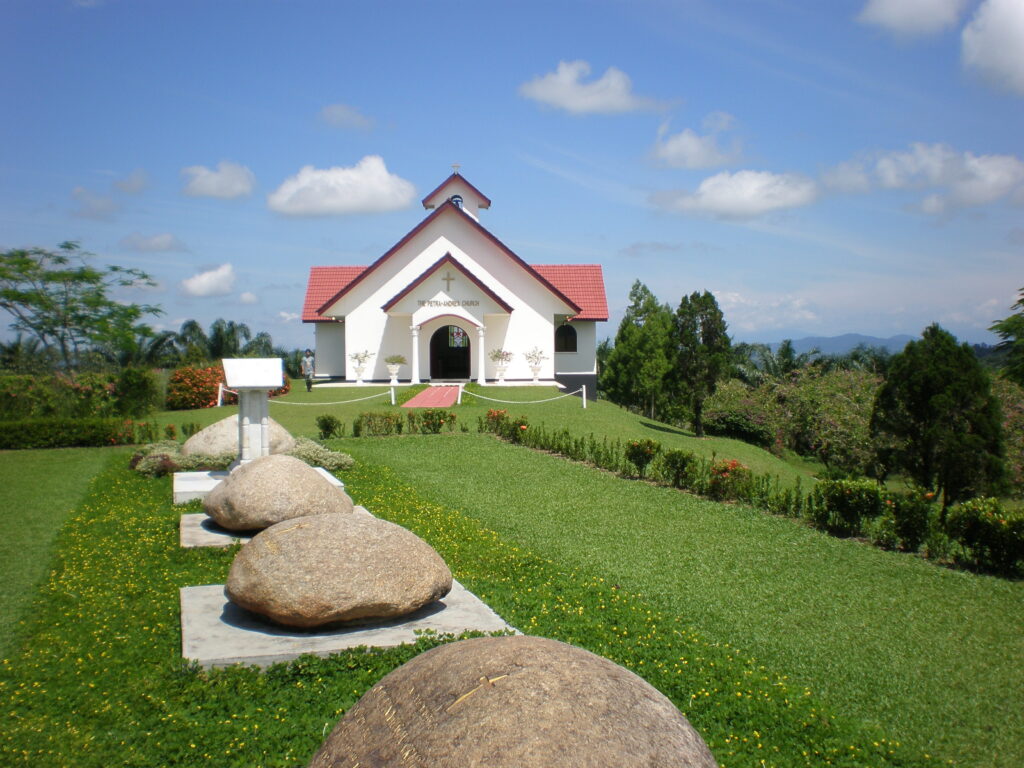
Mosque
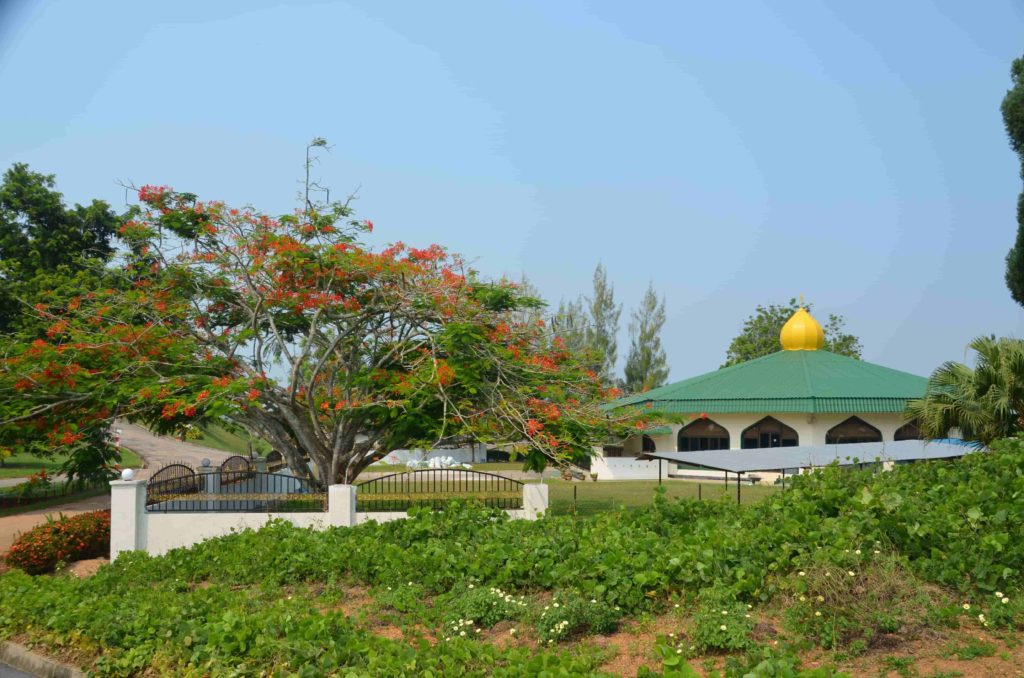
Staffs and Workers Quarter
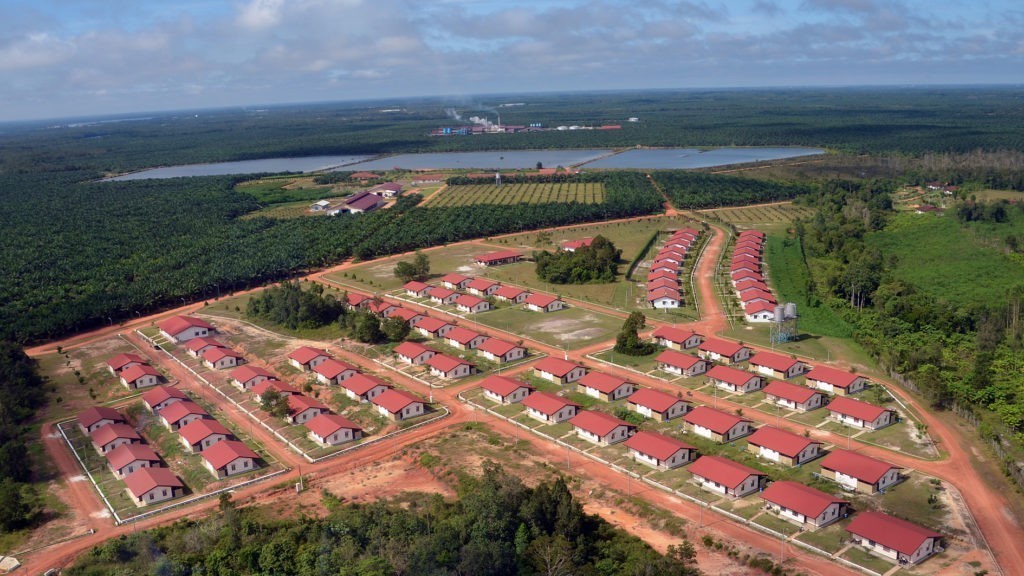
Drinking-Water Filtration System
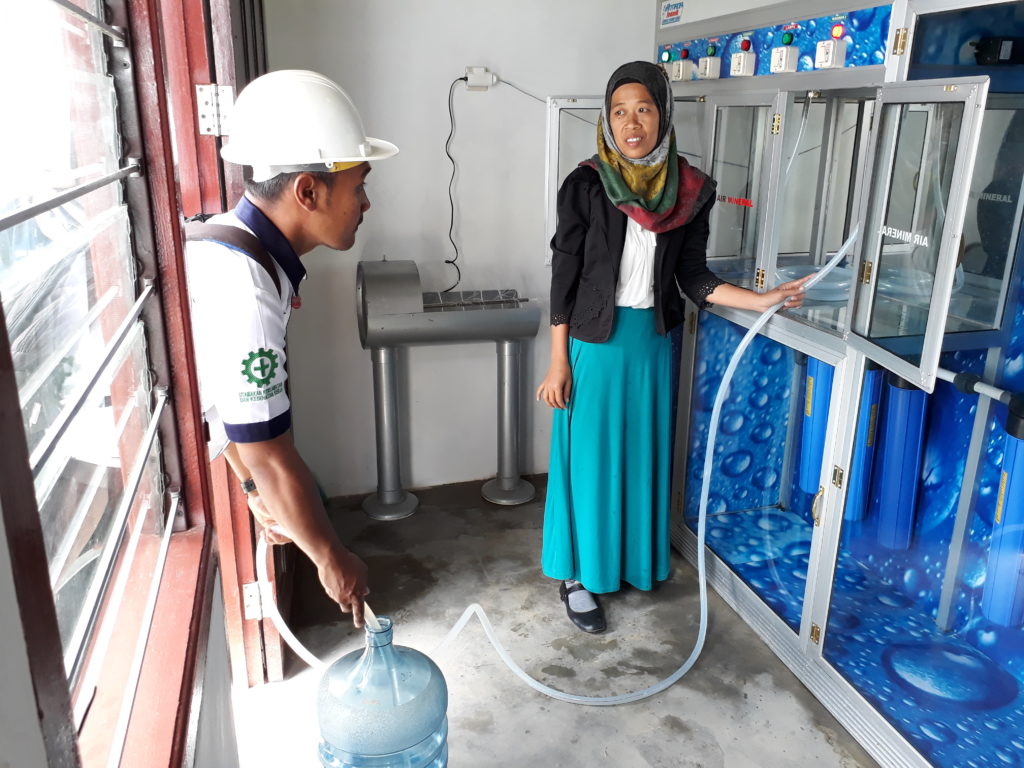
Clubhouse
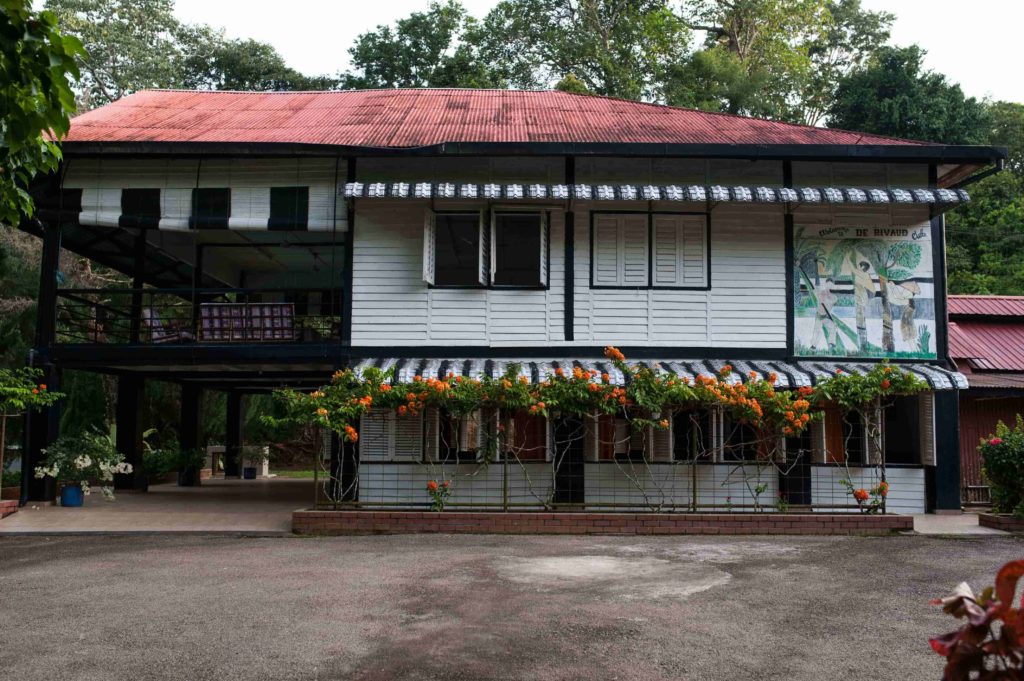
Museum
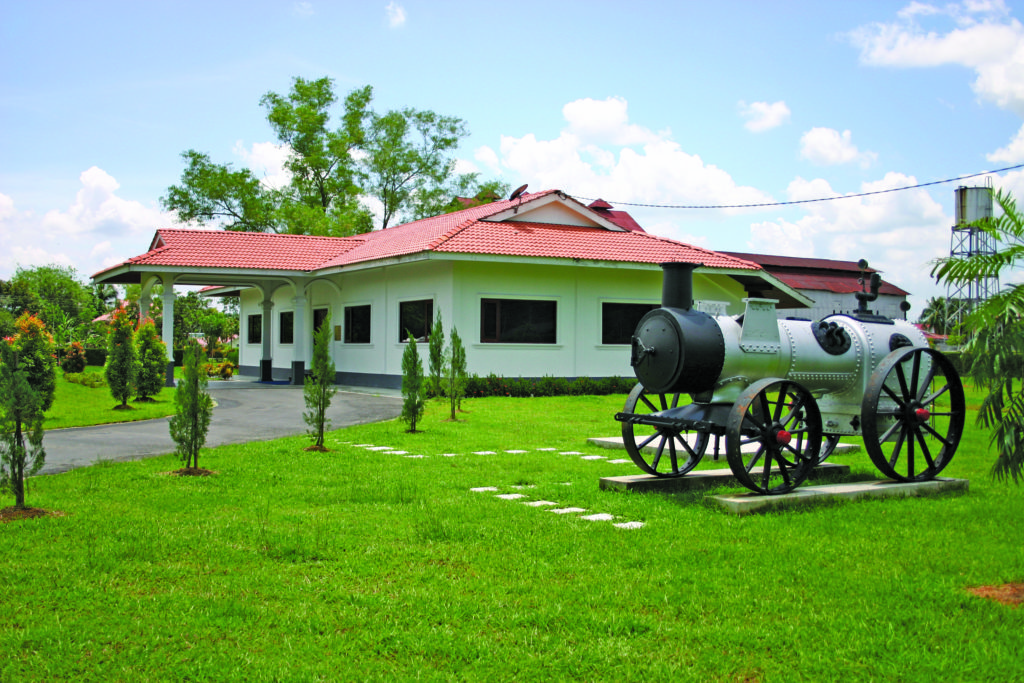
Sundry Shop
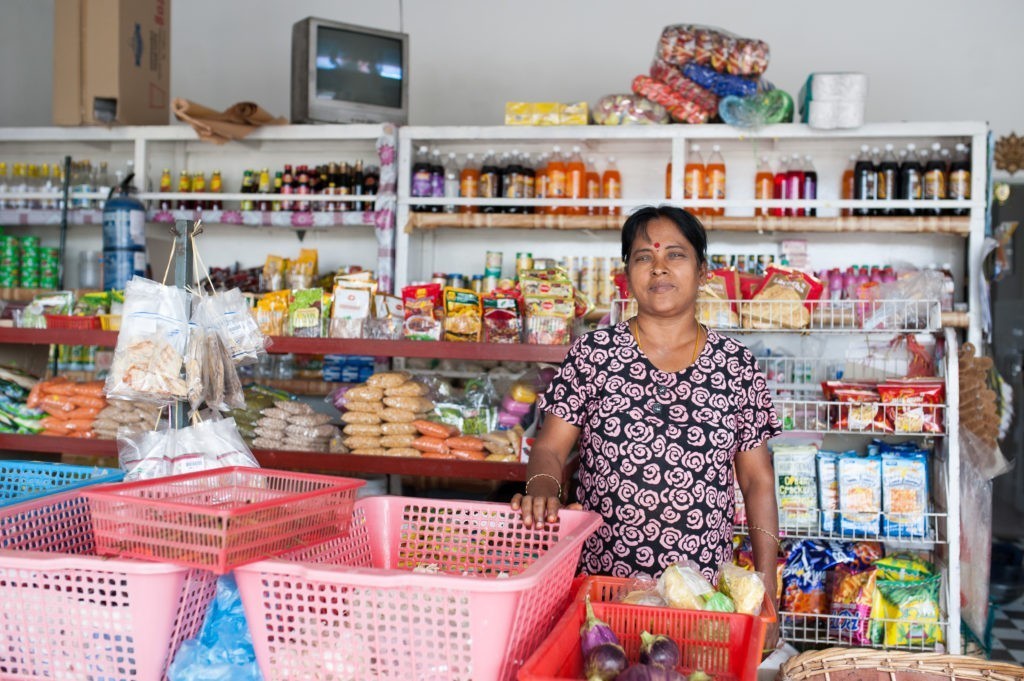
Barber Shop
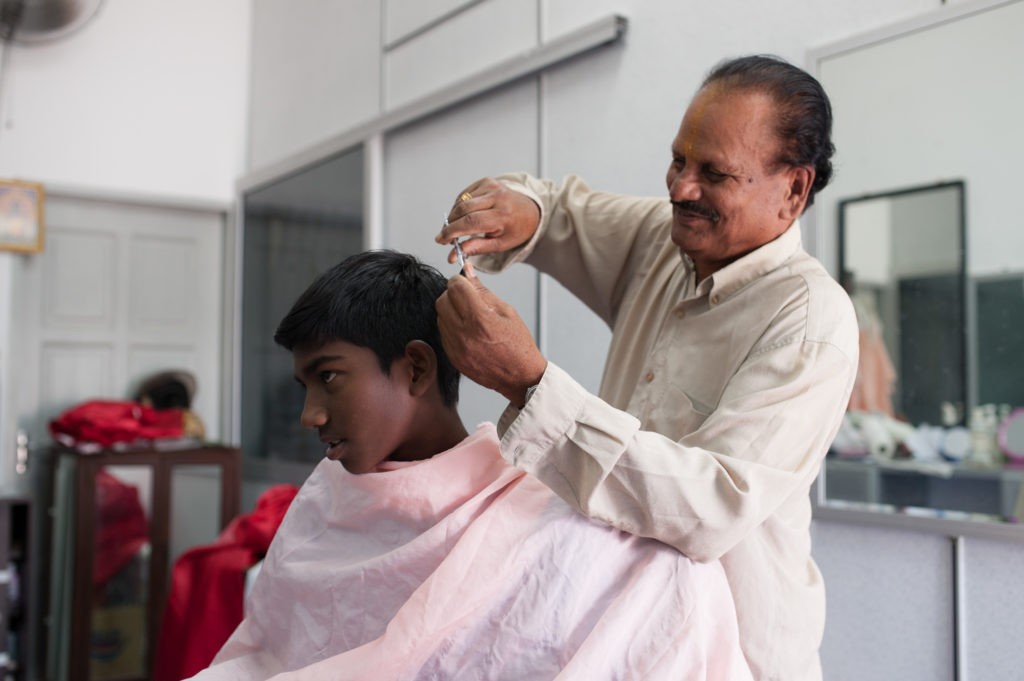
Ferry Transport
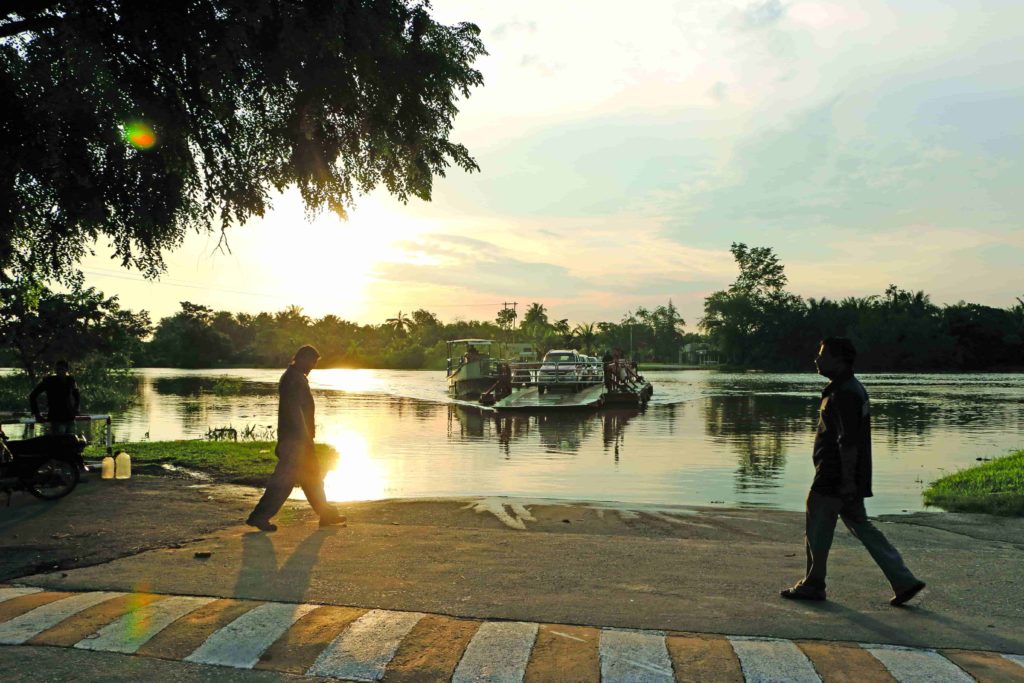
In UP our human capital is indispensable and our approach is “Reach, Teach” as well as “Reach and Remind’. Training schedules are prepared for our employees annually in the respective Estates and other Departments to ensure that the various trainings are being carried out on a regular basis throughout the year.
This is monitored and verified internally by the HRSS team and also through external auditors during MSPO/ISPO/RSPO annual audits. As for Staff and Executive levels, training sessions are generally conducted on a group basis.
These trainings cover Occupational Safety & Health, Human Rights, Best Agriculture & Management Practices and Industrial Laws and others. With 85% of our workforce being guest workers and with 20% annual turnover it is imperative that on the job trainings and re-trainings are constantly conducted. The scope further widens for certain types of categories, for instance, fire drills are being held periodically as per annual training programmes with the participation of neighbouring communities.
An employee who knows that he needs to wear his Personal Protective Equipment (PPE) during his operation at the site without being monitored/presence of his superiors is what internalizing the awareness altogether. Nevertheless, the training sessions need to be constantly carried out as human nature also tends to take things for granted.
The competence and skills of the Group’s employees are the main contributors to Operational Success. This, undoubtedly, also helps them to enhance their capabilities and build capacity. Life-long learning, through training programme, conferences and seminars which are relevant to the Group’s businesses are identified on an ongoing needs basis and the Company allocates a dedicated training budget to support the continuous development of our employees.
The training’s effectiveness transpires in the awareness of our employees during unannounced internal audits and performance monitoring.
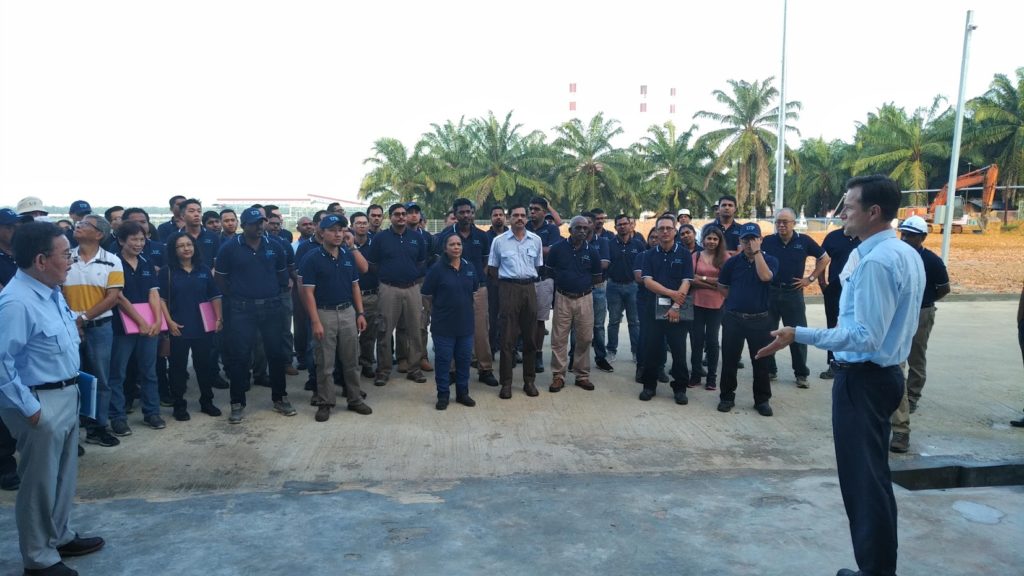

We are committed to secure the safety and health of all our employees at work and strive to maintain a safe and healthy working environment for our employees, customers and public.
We value our workplace safety and health as being of paramount importance for all our employees and our respective Managers/Heads of Departments are responsible in implementing our Occupational Safety and Health Policy.
Estate Group Hospitals
The Company operates two well-equipped estate group hospitals in Malaysia and a modern Health Care Centre in Indonesia with trained resident Hospital Assistants supervised by Medical Doctors. Regular inspections of the employees’ housing are made by the Health Care Team to ensure that sanitation, health and drainage standards are maintained according to the Company’s policies.
Human Resources, Sustainability and Safety (HRSS) Department
The HRSS Department is responsible for formulating and developing policies and procedures which aligned with objectives and core values of the Group in respect to managing people, workplace culture and the environment.
The key HR functions include recruitment, selection, training, succession planning, welfare and safety.
Besides managing HR, the Department is responsible for driving the sustainability agenda of the Group, which includes ensuring that the Group conducts its business in a responsible manner that adheres to global standards and meets stakeholders’ expectations.
The team also engages in strategic partnerships to strengthen the sustainability practices of the Group.
The Company’s Safety and Health Officer makes periodic workplace inspections. Safety Committee meetings are held in accordance with Department of Safety & Health (DOSH) regulations.
Safety operating procedures and system checks for all processes and equipment are in place and product quality standards are stringently maintained in a responsible manner.
Newly established Safety Division
An additional 3 full time safety officers have been recruited to the Safety Division now totalling 6 officers. Going forward the Safety Division will on a quarterly basis be requested to brief the Company’s Executive Committee Members on the progress made as well as shortcomings that have been encountered, so these can be addressed affirmatively. A higher degree of vigilance has now started with a more systematic and disciplined follow up to areas identified to have weaknesses. This will be galvanised through training programmes, “Reach and Teach” and “Reach and Remind” sessions combined with impromptu safety audits in our mills, estates and refineries and HIRARC programmes across the UP Group so to better prevent and minimise the risks of accidents taking place. Our common goal on safety must be “one accident is one too many”.
Chemical Health Risks Assessment (CHRA)
CHRA and Medical Surveillance programmes are regularly carried out for all employees engaged in handling pesticide and other chemicals. In this context, training programmes in the use of personal protective equipment for workers exposed to hazardous compounds are regularly conducted and have been a vital part of our operations for many years.
Audiometric tests and fire drills are also conducted on a regular basis. These are kept up to the mark by the periodic workplace inspections carried out by the Company’s Safety and Health Officer. CHRA renewals are conducted every five years and we are on schedule.
Hazard Identification, Risk Assessment and Risk Control (HIRARC)
In recent years, HIRARC has become fundamental to the planning, management and the operation of a business as a basic risk management practice. In line with our approach of preventive measures as a way of providing safe workplaces, we have conducted HIRARC on all our operations. With HIRARC, we were able to identify hazards, analyse and assess their associated risks and then apply suitable control measures. We are pleased to report further positive changes in our working environment with the introduction of HIRARC.
Every three years or whenever there are changes in the process or activities the HIRARC shall be reviewed. The records shall be maintained for at least three years (in some cases legislative requirement will determine the minimum time to retain records).
Fatal Accident Rate (FAR)
Fatal Accident Rate calculation is as per the below formula (Malaysian OSH Act 1994 JKKP8)
Fatality Rate @
Fatal Accident Rate (FAR)=
No. of fatalities x 1000
Annual average of No. employees
Our aim is to avoid all incidents that put our employees at risk and to achieve zero fatalities. Every fatality is followed by a thorough review of the cause and action undertaken to eliminate the factors involved. All reviews have been reinforced with continued efforts in the training and retraining on the use of appropriate protective equipment in order to minimise risks.
Every tragic accident is formally investigated and the Group ensures that the necessary bereavement arrangements are handled compassionately. Compensation under the SOCSO scheme will be provided to the bereaved family.
During 2023, we are pleased to inform that there were no occupational related fatal accident within our Malaysian operations.
The Group is determined to continue to mitigate all safety risks through robust safety programmes and preventive intervention. Our Group will further improve and continue its regular in-house training programmes combined with impromptu safety audits in our mills, estates and refineries through our “Reach and Teach” and “Reach and Remind” initiatives. In line with our approach of preventive measures as a way of providing safe workplaces, we continuously conduct HIRARC on all our operations to raise the level of awareness on safety. The Company has recently established a dedicated Safety Division under the Human Resources, Sustainability and Safety (HRSS) Department to strengthen its commitment. As mentioned earlier, two additional safety officers and one safety supervisor have been recruited and we are in the midst of recruiting one more safety officer. Our common goal on safety must be “one accident is one too many”.

Lost Time Injury Frequency Rate (LTIFR)
LTIFR refers to Lost Time Injury Frequency Rate, the number of lost time injuries occurring in the workplace per 1 million man-hours worked. From the table below (year 2021) shows that 5.02 lost time injuries occurred on our jobsite every 1 million man-hours worked.
Lost Time Injury Frequency Rate calculation is as per the below formula (Malaysian OSH Act 1994 JKKP8)
Frequency Rate@
Lost Time Injury Frequency Rates (LTIFR)=
No. of accidents x 1,000,000
Total man-hours worked
The leading cause of accidents in 2023 involved harvesting operations accounting for about 36% (injury from thorn pricks, debris falling into eyes during harvesting and pruning, injury from stalk cutting and buffalo related accidents) followed by commuting accidents, slips and fall cases and accidents related to locomotives/cages.

The difference of LTIFR between our Malaysian and Indonesian operations is due to 7.5 working hours per day for Malaysia while 7 working hours per day in Indonesia. In addition to that, the OSHA of Indonesia stipulates that any accidents regardless the manday lost shall be reported to JAMSOSTEK whereas OSHA of Malaysia stipulates that any accidents above 4 mandays lost shall be reported to DOSH/JKKP and SOCSO.
The statistic on high incidence or high risk of diseases related to their occupation in 2023 is shown below:
| Workers with high incidences of diseases | Workers with high risk of diseases |
| Nil | Nil |

